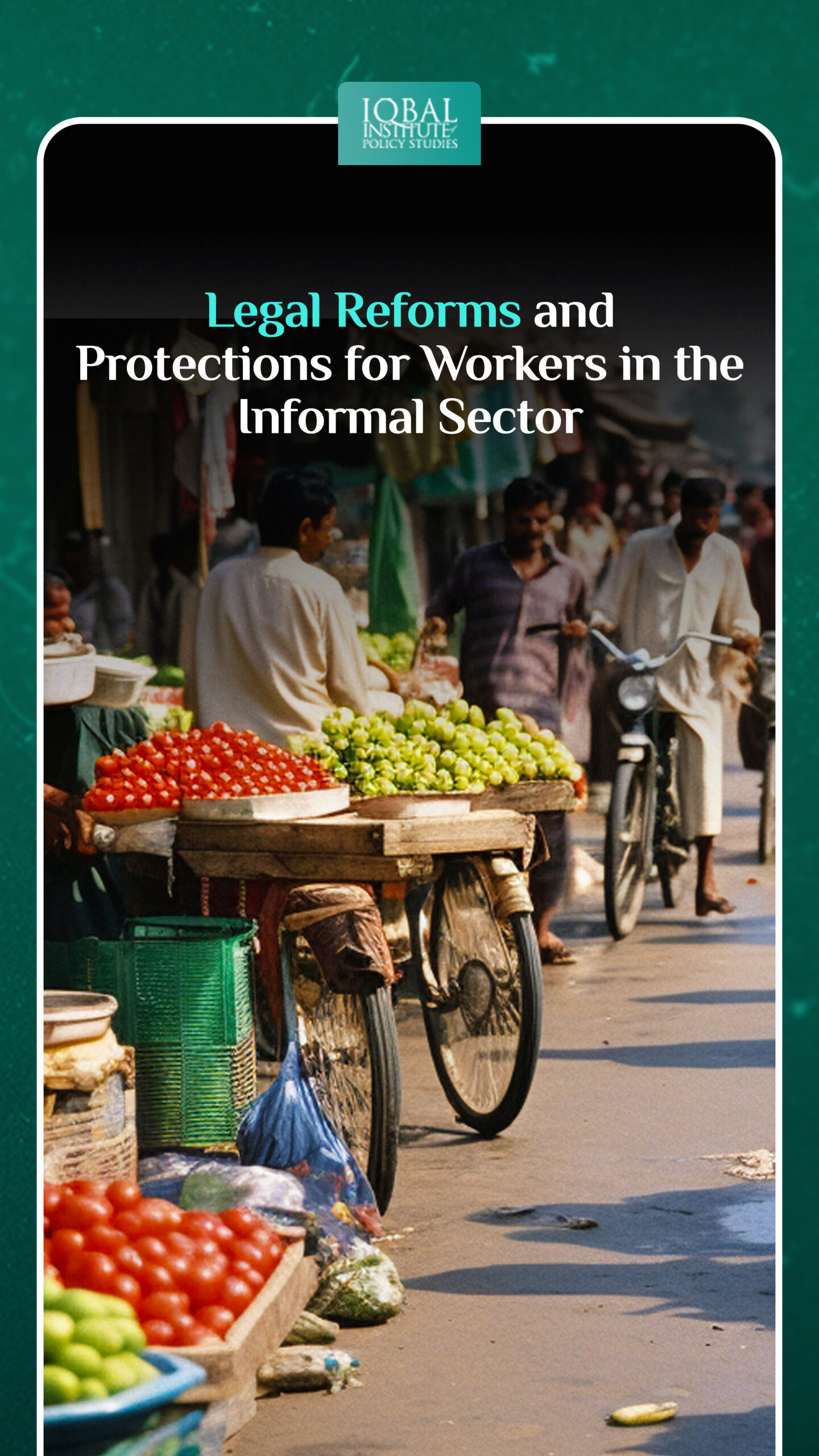The informal sector in Pakistan, though often overlooked, constitutes a substantial portion of the nation’s economy, providing livelihoods for millions of workers. However, these workers, engaged in diverse economic activities such as street vending, small-scale manufacturing, agriculture, and domestic work, often face precarious conditions. This blog explores the pressing need for extensive legal reforms and robust protections for workers within the informal sector, with a focus on Pakistan.
Understanding the Informal Sector
The informal sector, often referred to as the shadow economy, constitutes a significant and dynamic part of Pakistan’s economy. This sector encompasses a wide array of economic activities and employment opportunities that exist outside the formal regulatory framework. It is characterized by the absence of formal contracts, limited legal protections, and typically includes workers in low-skill, low-wage, and often unregistered positions. These individuals are engaged in various occupations, from street vendors and small-scale manufacturers to domestic helpers and agricultural laborers. Despite their vital role in contributing to the country’s GDP and providing employment to a substantial portion of the population, informal sector workers grapple with challenges such as job insecurity, low wages, and lack of access to social and legal protections. Understanding the nuances and intricacies of the informal sector is crucial in appreciating the need for legal reforms and comprehensive protections to uplift the lives of millions of Pakistan’s workers, mitigate income inequality, and promote social inclusion within the broader economic landscape.
Challenges Faced by Informal Sector Workers
Job Insecurity
Workers in the informal sector often grapple with job insecurity. The lack of formal employment agreements allows employers to terminate them without notice, leaving them financially precarious.
Low and Irregular Wages
Low and inconsistent incomes are rampant within the informal sector, where many workers earn less than the minimum wage, rendering them unable to meet their basic needs.
Absence of Social Protections
Informal sector workers are typically excluded from social safety nets, making them susceptible to financial hardships during periods of crisis or in old age.
Limited Legal Safeguards
Due to the absence of formal documentation and legal registration, informal sector workers confront substantial hurdles in enforcing their labor rights and seeking justice in cases of workplace exploitation, occupational hazards, or discrimination.
Importance of Legal Reforms
The necessity for comprehensive legal reforms for workers in Pakistan’s informal sector cannot be overstated. The following reasons underscore the significance of such reforms:
Social Inclusion
Legal reforms can foster social inclusion by extending labor rights and protections to all workers, irrespective of their employment status, thereby diminishing economic and social disparities.
Economic Stability
Offering job security and enforcing wage regulations can enhance the economic stability of informal sector workers, subsequently reducing poverty and income inequality.
Human Dignity
Legal protections uphold the human dignity of workers by ensuring secure working environments, equitable remuneration, and safeguards against exploitation, ultimately affording them a life of greater quality.
Economic Growth
When informal sector workers are protected by labor laws, they are more likely to invest in their skills and education, leading to heightened productivity and overall economic growth.
Key Legal Reforms and Protections
The following legal reforms and protections are essential to enhance the well-being of informal sector workers in Pakistan:
Formalization Initiatives
Encourage informal sector businesses to register, operate within the formal legal framework, and thereby gain access to essential benefits and legal protections.
Minimum Wage Regulation
Enforce minimum wage standards to ensure fair compensation for workers, and implement mechanisms for regular adjustments to match the cost of living.
Job Security Measures
Develop and enforce regulations that protect workers from arbitrary dismissals and provide dispute resolution mechanisms, such as labor courts, to address employment-related conflicts.
Social Safety Nets
Establish comprehensive social protection programs, including healthcare coverage, unemployment benefits, and retirement plans, for informal sector workers, ensuring financial security in times of need and retirement.
Occupational Health and Safety Standards
Enforce workplace safety standards to safeguard workers from hazardous conditions, promoting their well-being and preventing workplace accidents.
Training and Skills Development
Promote skills training and education opportunities specifically tailored to the needs of informal sector workers, enhancing their productivity and earning potential.
Conclusion
The informal sector in Pakistan constitutes a critical element of the nation’s economy, providing substantial contributions to its growth. Legal reforms and comprehensive protections for workers in this sector are indispensable to address the multitude of challenges they encounter, such as job insecurity, inadequate wages, and a lack of social security. By extending labor rights, enforcing minimum wage regulations, and ensuring job security, Pakistan can substantially improve the living standards of millions of its citizens while fostering economic growth and social inclusion. Recognizing and safeguarding the rights of informal sector workers is not merely a matter of economic development; it is a profound commitment to social justice and human dignity. In embracing this mission, Pakistan can create a more equitable and prosperous future for all of its workers.
This article is written by Radma Noman. Radma is a research analyst at the Iqbal Institute of Policy Studies (IIPS).



Leave a Reply